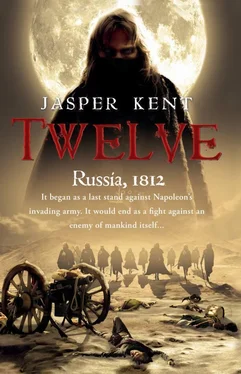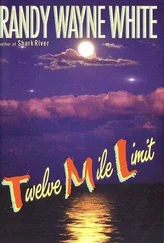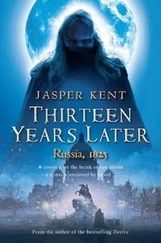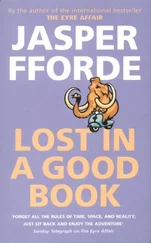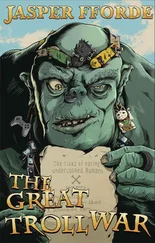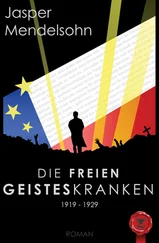He had pulled up, remembering he had to breathe as well as speak. His enthusiasm bordered on anger, but the pleasure I took in listening to him was only outdone by the pleasure he took in talking. He smiled ruefully, seeing that he had contradicted himself in a way that I would not have spotted. 'Well, just because some of the folk stories are made up doesn't mean they all are. Trees in the forest, you know.'
Now, as I walked alongside Vadim towards the French lines, recalling the conversation, I wondered if, somewhere out there in the dark Russian countryside, Maks was regaling the three Oprichniki under his command with similar polemics. They didn't seem the type to engage in theological discussion, which was all the better for Maks – he wouldn't be interrupted.
'I just had a thought,' whispered Vadim, disturbing my remembrances. We had made our way back on to the road where we had earlier watched as the Oprichniki slaughtered the French platoon. We were at most a verst beyond the farmhouse.
'What?' I asked.
'That we might be mistaken for the enemy by our own side.'
'Or by the Oprichniki, at least,' I added.
He stopped and turned to me. 'They are on our side, Aleksei. It doesn't matter what they do; they do it for the best of reasons – for Russia.'
Once again, the hackneyed, old argument reassured me, but as we walked on it struck me that while their interests might coincide with those of Russia, that didn't mean that they fought for Russia in the way that we did. One might as well say that we – Vadim and I – fought for England. At present we fought on the same side, but a simple signature on a treaty might in an instant change everything. And I doubted whether it would need any written treaty for the Oprichniki to change their allegiance.
The enemy seemed to have little concept of security, and it proved to be a trivial matter for two Russian officers with French uniforms and passable French accents to wander into a camp of perhaps two hundred men on the very eve of what could prove to be the decisive battle of the campaign. From experience we kept away from the tents where the more senior officers would be barracked, knowing that they would have tighter lips and sharper ears than the lower ranks. We ended up sat around a fire with four young artillery officers who introduced themselves as Stephan, Guillaume, Pierre and Louis. For the evening, I was André and Vadim was Claude.
Like most soldiers at the battlefront, they knew little of the overall strategy of their masters. They understood it at the highest level – that the plan was to take Moscow – and, even higher, that this was because the perfidious Russians were trading with the English. They understood it at the most basic level; that in the morning they were supposed to attack the Russian emplacements directly in front of them. Somewhere in between those two, in the region of how the following day's battle was to be conducted and of how the French planned to get from Borodino to Moscow, was where we discovered the gaps in their knowledge. Those gaps were easily filled with gossip and rumour.
Some of the gossip was very domestic and very French. The hottest topic was the fact that the emperor had received that very day a package containing a portrait of his young son – the so-called 'King of Rome'. It was a pleasant conversation for me to engage in, since it reminded me of my own son in Petersburg and of my own 'Marie-Louise' in Moscow.
Pierre had the same idealistic simplicity that I loved in Maks, although being younger than Maks, he had not yet found it diminished by any sense of political reality.
'Napoleon may love his son, and that's fine, but I doubt he really sees him as an heir.' He looked around us for agreement. 'He has made himself emperor purely as a temporary measure, to keep the Republic on track through difficult times, but he knows the next emperor, or whatever he may choose to call himself, must rise on merit, as he did, not by virtue of a serendipitous birth.'
Unusually, Vadim took up the political point, although from a typically domestic angle. 'But if you believe that, you're saying that Napoleon married Marie-Louise for love. From everything I've heard, he truly loved Josephine and still does.'
'I agree with Claude,' said Guillaume, speaking for the first time. 'Napoleon has made a great sacrifice in leaving the woman he loves so as to provide the country with an heir to replace him.'
'Leaving the woman he loves for a girl half his age,' added Louis cynically.
I took a risk. 'The same sacrifice every patriotic Frenchman makes when he leaves his wife to visit his mistress.' It paid off. All four of them laughed in agreement.
Vadim, never the best at expressing his undoubted Russian patriotism, suddenly found the words to pretend he was the truest of French patriots. 'And yet Napoleon is happy to leave them both to lead us here for the sake of France.'
He had hit exactly the correct tone and everyone's agreement was expressed in a profusion of Gallic nodding all round the fire.
'Do you suppose he knew what the enemy had in store for us?' asked Louis after a thoughtful silence.
'They don't seem to have put up much of a fight yet,' I said.
'Not the fighting,' explained Stephan. 'This new weapon.'
'Haven't you heard?' added Guillaume. 'It's some kind of sickness. They're trying to spread it amongst us.'
'No, it's not a sickness,' said Stephan. 'It's animals – packs of trained wolves that they're setting upon us.'
'If it had been wolves we'd have seen them,' said Pierre.
'Perhaps, perhaps not,' said Guillaume. 'Wolves hunt at night, and there's precious little to see round here when darkness falls.'
'And how would they spread any sickness, anyway?' asked Stephan.
'It only takes one or two infected corpses,' explained Louis. 'They don't have to be catapulted over the walls of a besieged castle – just slipped amongst the bodies of our own dead and wounded.'
'I heard this morning that three of them – Russian saboteurs – walked into a camp with their pockets and their knapsacks full of gunpowder. When they were captured, they just blew themselves up, and those around them,' said Pierre. 'No one was hurt too badly – none of our lot, that is. The Russians were done for. But if they don't even care to protect their own lives, then how do we combat that?'
'It all sounds like the rumours of war to me,' said Vadim, being both rational and trying to defend his country from the accusation. 'I've heard them on every campaign I've been on. The enemy has to be made more than just an enemy. It's not enough that he opposes you; he has to be wrong as well. And if his cause is wrong, then his methods must be wrong too. And nobody likes to disagree and appear to be supporting the enemy, so the rumour grows and spreads.'
All four of the French soldiers eyed Vadim intently as they listened. 'So, to deny the rumours is to support the enemy, is it, Claude?' asked Pierre coldly. 'As you just did?'
I resisted the urge to put my hand to my sword, but prepared myself for action at any moment. The suspense was broken as Pierre began to laugh, followed by his three comrades and then by Vadim and me.
'You're probably right, my friend,' continued Pierre. 'They are rumours and so, by definition, they must be exaggerated. It's probably just Cossacks marauding and picking off our men.'
'Anyway,' said Louis, 'who could blame the Russians for using a new weapon if they have one? Every campaign is won by bending the rules of war just a little. There would have been men complaining, just like us, at the first use of a musket, or even a longbow – and now we wouldn't be without them.'
'I'll stick with my musket, Louis,' said Stephan, laughing, 'and you can have your longbow.'
Читать дальше
